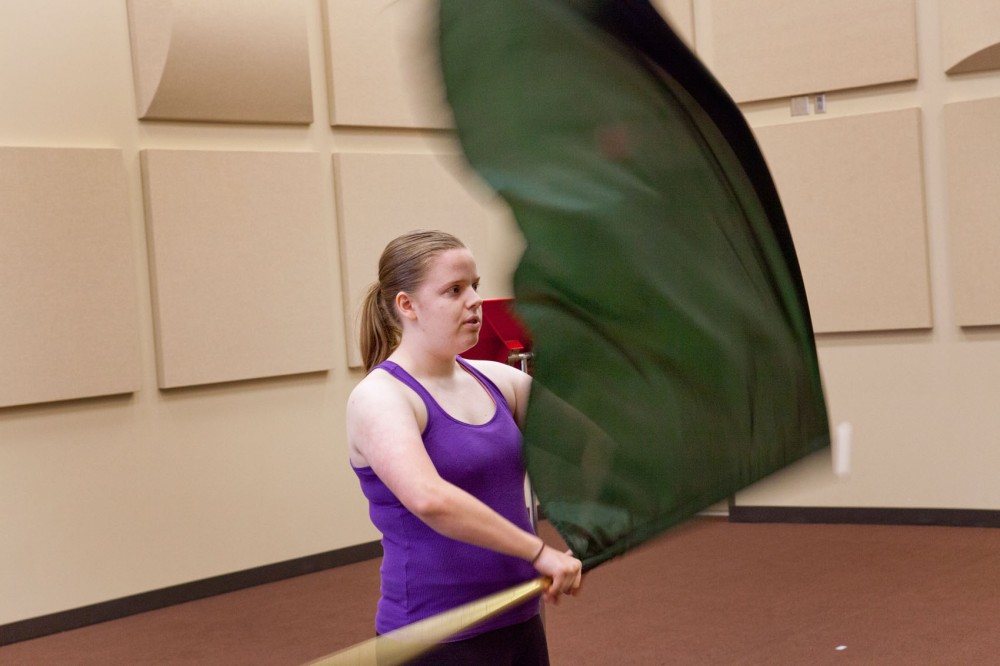Brandon Folkes remembers seeing the University of Minnesota Marching Band for the first time in seventh grade.
“I turned to my dad and pointed to the drum major and said, ‘I’m going to be the guy in the funny white hat.’”
True to his word, Folkes led the Minnesota Marching Band as the drum major this year.
Players looking to follow in Folkes’s footsteps are auditioning for leadership positions for the 2012 season over the next couple of weeks. Of the 125 who audition, only 55 will be selected to lead the band in the upcoming season. Next week, the band will hold public auditions for its top two positions — the drum major and block captain.
Mary Haglund, a chemical engineering freshman, waited anxiously outside the audition room Tuesday, alto saxophone in hand.
“I’m nervous about the marching portion. … I haven’t been on the field in four months,” she admitted.
During the audition, students play scales and one of the school songs, march at command and tell director Tim Diem what being a leader would mean to them.
“Maroon and gold is in my blood,” Haglund said. “I know I would make a good leader.”
Founded in 1892, the University Marching Band is carrying out a 120-year tradition.
“What we do on the field each week and the leadership we put forth can’t be replicated,” Folkes said. “We’re living out a tradition.”
Each year, about 120 rookies step onto the field for the first time for “Spat camp”: a rigorous two-week marching training period before school starts.
It’s the responsibility of the leaders to make sure the rookies make connections and start to function as a team, Diem said. The selected leaders are required to be on campus one week earlier to complete leadership training camp.
On average, leaders polish their skills for nine to 10 hours a day during training week.
“During the auditions, I’m not only looking for great players,” Diem said, “but [also] personalities that strike me as leadership personalities.”
Matthew Epland, a physics sophomore, was a tenor saxophone leader last season and is auditioning again.
“As leaders, we set the tone and the example of the season,” Epland said.
He’s also one of the four students in the finals for the public drum major audition at 3:30 p.m. on March 31.
After the audition, a panel will deliberate before announcing the block captain, the band’s second in command, and the drum major.
Potential drum majors are groomed by former drum majors in a three-month camp. During that time the number of candidates is narrowed down from 12 to four.
They are taught basic whistle and vocal commands and prepare a show preview to demonstrate their skills on audition day.
The drum major has a large public relations presence for the band, handling interviews with the press and giving a face to the band.
“In many ways the drum major is the quarterback of the band,” Diem said.
Not only are band members excelling out on the field — they also do well in the classroom. The last time the numbers were run, Folkes said the average GPA for the marching band was 3.6.
“Being a leader is great. You become a mentor, a teacher and a best friend,” he said. “We are a family making music for the thousands.”








